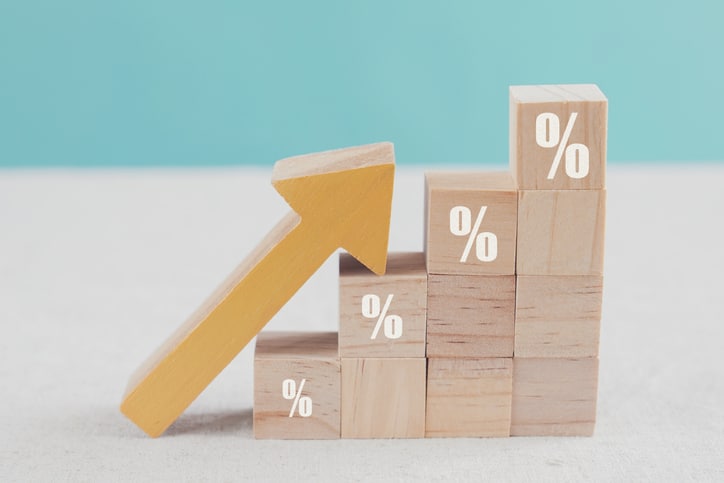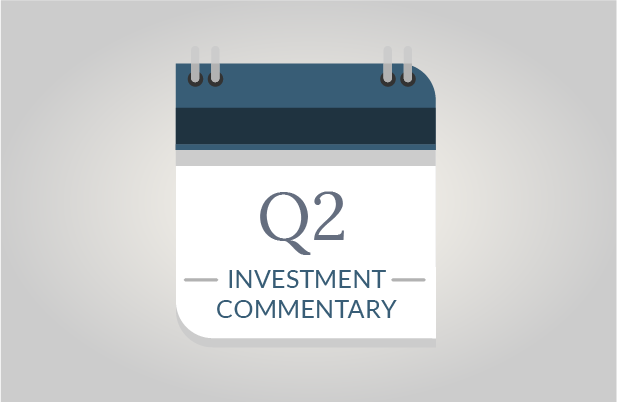As a consumer it is hard not to notice when the prices of the goods and services you buy are increasing. Over time we have come to expect prices to rise. A new car bought in the 90s was sure to be bought at a lower price than a new car if bought today. However, when prices rise quickly over a shorter period, we as consumers generally feel the impact more noticeably. In this article we will discuss what inflation is, its causes, and discuss inflation in today’s environment.
What Is Inflation?
Inflation can be most easily defined as the rise in prices across different sectors or industries which in turn affects the economy as a whole. US inflation is most commonly measured by the Consumer Price Index (CPI). The CPI is a direct measure of the average change in prices over time paid by urban consumers for a broad basket of products. The CPI shows the spending patterns of approximately 93% of the total US population. The eight major categories considered are food and beverages, apparel, education, communication, housing, transportation, medical care, and other goods and services.
Causes of Inflation
There are two main causes of inflation. The first, demand-pull inflation, happens when the demand for goods and services rises faster than the economy’s ability to supply goods and services. Simply put, demand is greater than the supply, and there are not enough goods or services to satisfy demand. The second cause, cost-push inflation, occurs when the cost to produce goods and services rises. One main example of cost-push inflation is wage increases. Higher production costs could lead to a decrease in supply.
Inflation Today
Unfortunately, both of the above causes of inflation exist in our economy today as we are experiencing shortages in products and services as well as wage increases.
In July 2021, the CPI rose 5.4% over the past 12 months, which represents the largest increase in nearly 13 years. However, on a monthly basis the CPI rose at a slower pace in July than it did in June (0.5% vs. 0.9% respectively). There are many causes for rising inflation, including but not limited to, strong consumer demand post Covid lockdowns, a tight labor market, supply chain disruptions and the housing boom. A semiconductor shortage has also greatly affected the technology sector, reducing availability and increasing prices in goods. As an example, automobiles rely heavily on semiconductors and have seen a dramatic impact from the shortage, pushing vehicle prices higher at a rapid rate.
Where is Inflation Headed?
Many leading experts have expressed expectations that current inflationary pressures will be transitory, or temporary, including the Chair of the Federal Reserve, Jerome Powell. Several other economists have stated they expect higher than usual inflation to persist, but eventually decline over time.
Ultimately, it is impossible to predict the future direction of inflation or other economic factors. However, we do believe that there is a distinct potential that inflation could remain a part of our economy and daily lives for the foreseeable future, particularly until Covid is under control on a global level.
Inflation Solutions
There is no sole or perfect solution to inflation. Gold is often thought to be a defensive inflation play, but it currently has a negative return for the year. Broad commodities are another potential inflationary hedge, but they have complications and risks such as contango, and they’re not doing as well as the S&P 500 Index this year. Currently, we are maintaining traditional exposure to stocks as companies could be in a position to deflect inflationary pressures through a combination of productivity increases, cost efficiencies and price increases.
Bonds can experience downward pricing pressure during inflationary times. We have been discussing this with clients relative to risk and liquidity considerations as bonds are still a strong defense for both. We have also been working on efforts to diversify bonds a bit more, including a short-term element which could help deflect interest rate risks.
What You Can Do
If you’re working and secure in your position, it might be appropriate or prudent to ask for an increase in compensation. Most employers know that the labor market is tight, are concerned about losing employees and might be willing to pay more to secure your talent.
Other than increasing your income (which might or might not be feasible), we are encouraging everyone to have expectations about prices rising. Such expectations should be factored into your budget planning, particularly for large expenses. Perhaps the most extreme example is if you are considering a large home project. You should be prepared for price adjustments due to labor demands, inventory shortages and widely fluctuating lumber prices. Delaying a project could allow you to reduce the total cost, but there’s no guarantee.
At SageVest Wealth Management, we believe that preparing for your financial future requires thoughtful and proactive planning that takes all factors that influence your success into consideration. Inflation is only one example of such. Please contact us to discuss any questions you may have on the current economic environment, and how we can formulate a strategic plan to help you realize your financial goals.




